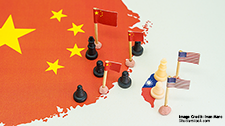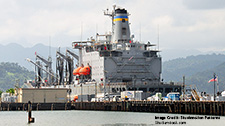Sri Lanka: Towards Reconciliation?
Martina Klimes
Mahinda Rajapaksa was reelected President of Sri Lanka following the country’s first presidential elections after the military victory over the Liberation Tigers of Tamil Eelam (LTTE) last May. Despite some violent incidents during the election campaign, the elections were largely peaceful. Rajapaksa declared in his announcement from January 12 this year that he is prepared to execute the necessary constitutional changes to accommodate the political aspirations of Sri Lankan minorities, by creating a second parliament chamber which would allow greater Tamil political representation. In waking up from the post-victory euphoria of May last year the main issue on the agenda of the president has to be winning the peace.
Related Publications
-
Navigating the Indo-Pacific: How Australia and the EU Can Partner for Peace, Stability, and Prosperity
To navigate the choppy waters of the Indo-Pacific, the EU and Australia must be on the same wavelength regarding shared interests in rules, values, and an open and liberal economic […]
-
Taiwan-PRC Crisis: What Cross-Strait Conflict Could Cost Europe
The escalating tensions between Taiwan and China pose significant economic and strategic challenges to the European Union, such as the inaccessibility of Taiwanese inputs, market, and capital. This issue brief […]
-
EU-Thailand FTA Negotiations: IUU Fishing and Human Rights Remain Obstacles
Thailand’s fishing industry, which at its height saw as many as 200,000 migrant workers from neighboring Laos, Myanmar, and Cambodia caught in a brutal system of abuse, withered global criticism […]
-
Needed, a Framework to Protect Undersea Cables
In the data-driven world we live in, submarine cables are the arteries that connect nation-states and their people in literally every human activity, including trade, commerce, entertainment, and social interactions. […]
-
India-Japan-Philippines: A Strategic Maritime Trilateral or More?
Regional states like India, Japan, and the Philippines have been seeking cooperative solutions with other middle powers that can both counter the Chinese influence and fulfill other economic as well […]




